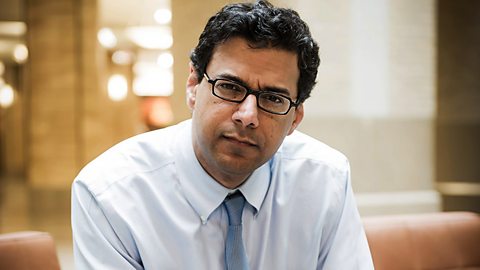Lecture 1: Why Do Doctors Fail?
Lecture 2: The Century of the System
Lecture 3: The Problem of Hubris
Lecture 4: The Idea of Wellbeing
http://www.bbc.co.uk/programmes/articles/6F2X8TpsxrJpnsq82hggHW/dr-atul-gawande-2014-reith-lectures
Dr Atul Gawande – 2014 Reith Lectures
Atul Gawande, MD, MPH is a practicing surgeon at Brigham and Women’s Hospital and Professor at both the Harvard School of Public Health and Harvard Medical School.

In his lecture series, The Future of Medicine, Dr Atul Gawande will examine the nature of progress and failure in medicine, a field defined by what he calls ‘the messy intersection of science and human fallibility’.
Known for both his clear analysis and vivid storytelling, he will explore the growing importance of systems in medicine and argue that the future role of the medical profession in our lives should be bigger than simply assuring health and survival.
The 2014 Reith Lectures
The first lecture, Why do Doctors Fail?, will explore the nature of imperfection in medicine. In particular, Gawande will examine how much of failure in medicine remains due to ignorance (lack of knowledge) and how much is due to ineptitude (failure to use existing knowledge) and what that means for where medical progress will come from in the future.
In the second lecture, The Century of the System, Gawande will focus on the impact that the development of systems has had – and should have in the future – on medicine and overcoming failures of ineptitude. He will dissect systems of all kinds, from simple checklists to complex mechanisms of many parts. And he will argue for how they can be better designed to transform care from the richest parts of the world to the poorest.
The third lecture, The Problem of Hubris, will examine the great unfixable problems in life and healthcare – aging and death. Gawande will argue that the reluctance of society and medical institutions to recognise the limits of what professionals can do is producing widespread suffering. But research is revealing how this can change.
The fourth and final lecture, The Idea of Wellbeing, will argue that medicine must shift from a focus on health and survival to a focus on wellbeing – on protecting, insofar as possible, people’s abilities to pursue their highest priorities in life. And, as he will suggest from the story of his father’s life and death from cancer, those priorities are nearly always more complex than simply to live longer.
Five things to know about Dr Atul Gawande
Find out about Atul Gawande ahead of his 2014 Reith Lectures…
1.
In 2010, Time Magazine named him as one of the world’s most influential thinkers.
2.
His 2009 New Yorker article – The Cost Conundrum – made waves when it compared the health care of two towns in Texas and suggested that more expensive care is often worse care. Barack Obama cited the article during his attempt to get Obamacare passed by the US Congress.
3.
Atul Gawande’s 2012 TED talk – How do we heal medicine? – has been watched over 1m times.
4.
Atul Gawande has written three bestselling books: Complications, Better and The Checklist Manifesto.
The Checklist Manifesto is about the importance of having a process for whatever you are doing. Better focuses on the drive for better medicine and health care systems. Complications was based on his training as a surgeon.
5.
In 2013, Atul launched Ariadne Labs – a new health care innovation lab aiming ‘to provide scalable solutions that produce better care at the most critical moments in people’s lives everywhere’.